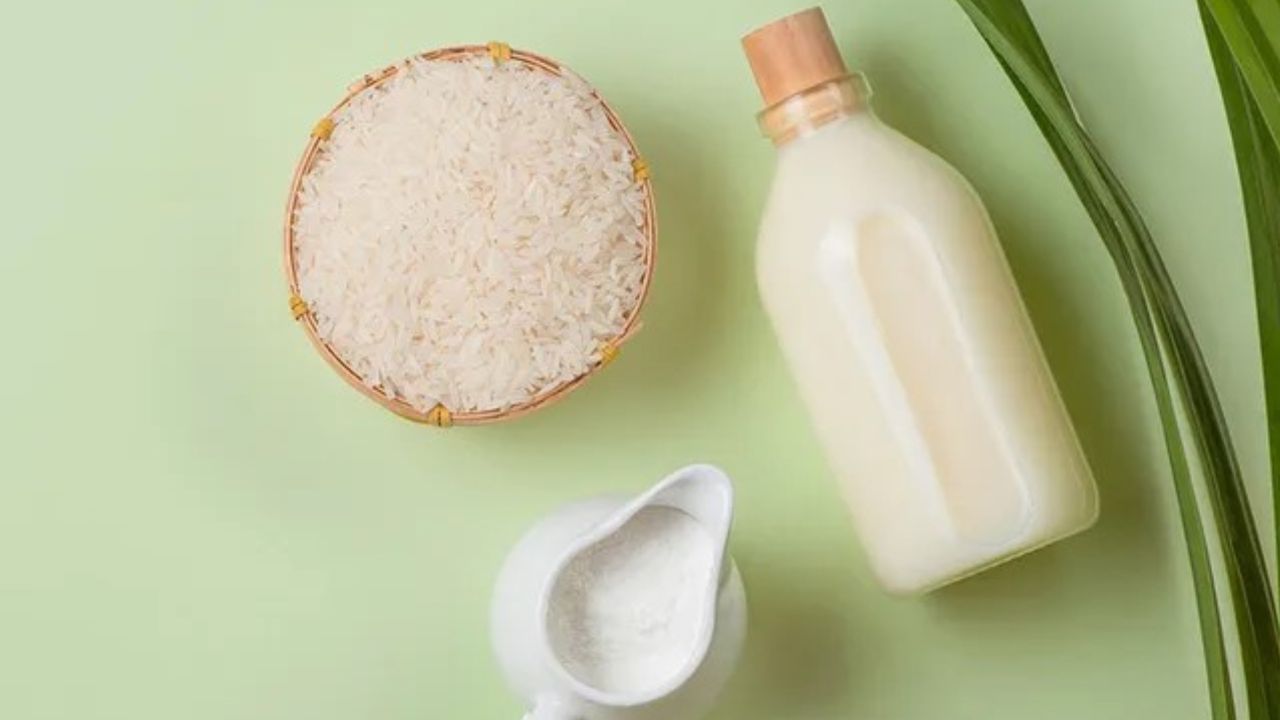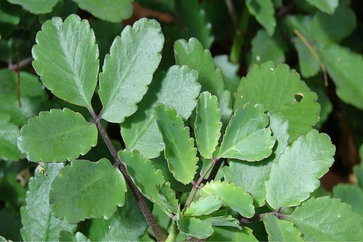Rice Water for Hair: The Miracle Treatment You Need to Try
In recent years, natural hair care treatments have gained significant popularity as individuals increasingly seek chemical-free alternatives to maintain healthy, vibrant hair. These treatments are not only seen as safer for the scalp and hair, but they also reflect a growing awareness about the importance of using environmentally friendly products.
From oils and herbal infusions to DIY masks, natural ingredients are becoming the cornerstone of many people’s hair care routines. One such ingredient that has gained widespread attention in the hair care community is rice water. Rice water, the starchy liquid left over after rinsing or soaking rice, has been used for centuries in various cultures for its nourishing properties.
Recently, it has emerged as a powerful trend in the beauty industry, praised for its ability to promote hair growth, enhance hair strength, and improve overall hair health. With its growing popularity, rice water has become a staple ingredient for those seeking a natural, cost-effective solution to hair care.
What is Rice Water?
Rice water is the starchy liquid that remains after rinsing or cooking rice. It is rich in nutrients, including amino acids, vitamins (such as B and E), and minerals, which are known to benefit hair and skin health. To make rice water, the rice is typically rinsed in water to remove excess starch, or it can be boiled, with the resulting liquid being used for various beauty treatments.
Historical Use of Rice Water in Ayurveda
In Ayurveda, rice water has been revered for centuries as a “Rasa” (nourishing) and “Shodhak” (purifying) remedy, particularly for its benefits in hair and skin care. Here’s a deeper look at its historical use with Ayurvedic terminology:
1. Nourishing and Strengthening Hair (Rasa and Shakti):
- Rice water, rich in “Vata” and “Pitta” balancing properties, has been used to “Virya” (strengthen) the hair follicles and promote “Ojas” (vital essence). This is believed to help in the nourishment of “Mula” (roots) and prevent “Keshya” (hair loss).
2. Hair Shining and Conditioning (Snehana):
- The “Sneha” (oily) nature of rice water is highly beneficial for conditioning the hair. It smoothens the hair cuticle, providing “Tejas” (radiance) and a glossy appearance, and maintains hair “Ruksha” (dryness) balance.
3. Scalp Health (Shirodhara):
- Ayurvedic texts recommend using rice water for “Shirodhara” (scalp treatments), as it helps “Shodhana” (cleansing) and “Tarpana” (nourishing) of the scalp. This is believed to reduce “Kleśa” (impurities), calm “Pitta” imbalances, and treat dandruff or other scalp irritations.
4. Aiding in Skin Care (Lepa):
- Rice water is also used as a “Lepa” (paste) or “Ubtan” (herbal scrub) for the skin. It is known for its “Ruksha” (cooling) and “Vishuddhi” (purification) properties, promoting clearer and smoother skin while removing “Vata” imbalances that can lead to skin dryness.
5. Fermented Rice Water (Vishuddhi and Agni):
- The practice of fermenting rice water enhances its “Agni” (digestive fire), which is thought to increase its “Prabhava” (potency). Fermented rice water is believed to have higher levels of “Rasa” (essence) and “Tejas” (inner radiance), leading to even better nourishment for hair and scalp, as it revitalizes and strengthens the “Kesha” (hair) with extra vitality.
In Ayurveda, rice water is considered a holistic remedy that works on the “Tridosha” (balance of Vata, Pitta, and Kapha), promoting overall harmony, beauty, and well-being.
Nutritional Components of Rice Water
Rice water is packed with a variety of essential nutrients that contribute to its effectiveness in promoting hair health. The key components found in rice water include:
1. Amino Acids
Amino acids, the building blocks of proteins, are present in rice water in abundance. These amino acids, particularly arginine, glycine, and glutamine, are vital for strengthening the hair shaft, improving elasticity, and promoting the overall health of hair follicles.
2. Vitamins B and E
- Vitamin B: This group of vitamins, especially B1 (thiamine), B3 (niacin), and B5 (pantothenic acid), plays a crucial role in hair growth by improving blood circulation to the scalp, which helps nourish hair follicles. Vitamin B also helps maintain a healthy scalp by balancing oil production and preventing dryness or dandruff.
- Vitamin E: Known for its antioxidant properties, vitamin E helps improve scalp circulation, stimulate hair growth, and reduce oxidative stress, which can cause hair damage. It also promotes the moisture retention of hair, making it smoother and shinier.
3. Minerals
Rice water is rich in essential minerals, including magnesium, zinc, and iron. These minerals contribute to hair health by:
- Magnesium: Strengthens hair and prevents breakage.
- Zinc: Helps regulate oil production on the scalp and prevents hair loss caused by an imbalance in scalp conditions.
- Iron: Plays a role in the nourishment of hair follicles by improving oxygen circulation, which is essential for healthy hair growth.
How These Nutrients Benefit Hair Health
The combination of amino acids, vitamins, and minerals in rice water offers a multitude of benefits for hair health:
- Strengthens Hair: Amino acids help to repair and strengthen hair fibers, reducing hair breakage and split ends.
- Stimulates Growth: Vitamins B and E promote circulation to the scalp, encouraging hair follicles to stay healthy and active, which can lead to enhanced hair growth.
- Improves Elasticity: The amino acids in rice water increase hair’s flexibility and strength, preventing excessive stretching and breakage.
- Enhances Shine and Smoothness: The hydrating properties of rice water, aided by vitamins and minerals, contribute to softer, shinier hair, making it look more vibrant and healthy.
- Balances the Scalp: The presence of vitamins and minerals supports scalp health by preventing dryness, dandruff, and oil imbalance, which can all impact hair growth and quality.
Thus, the rich nutrient profile of rice water makes it an excellent natural treatment for promoting strong, healthy, and shiny hair.
Benefits of Rice Water for Hair
Here are some of the key benefits of using rice water for hair, known for its nourishing and rejuvenating properties.
1. Strengthens Hair
Rice water is rich in amino acids, which help to strengthen hair strands from the inside out. These amino acids repair and fortify the hair shaft, reducing the likelihood of hair breakage and split ends. By improving the structural integrity of the hair, rice water makes hair less prone to damage, allowing it to grow longer and healthier.
2. Promotes Hair Growth
The nutrients in rice water, such as B vitamins and minerals like iron and zinc, stimulate the hair follicles by improving blood circulation to the scalp. This increased circulation nourishes the follicles, supporting stronger and faster hair growth. Regular use of rice water can also enhance hair density, giving the appearance of thicker, fuller hair over time.
3. Improves Shine and Softness
Rice water acts as a natural conditioning agent. The starch in rice water smooths the hair’s surface, reducing friction and making hair softer to the touch. This results in enhanced shine, giving hair a glossy, healthy look. Additionally, the moisturizing properties of rice water lock in hydration, keeping the hair soft and manageable.
4. Balances Scalp Health
Rice water helps to balance the scalp’s condition by addressing common issues such as dandruff, dryness, and scalp irritation. Its soothing properties help to calm inflammation and nourish the skin, creating a healthy environment for hair growth. The gentle action of rice water helps maintain a balanced pH level on the scalp, preventing the buildup of excess oil or dryness that can lead to scalp problems.
5. Repairs Damaged Hair
For hair that has been subjected to heat styling, chemical treatments, or environmental damage, rice water can work as a restorative treatment. It helps to repair damaged hair by replenishing moisture, restoring elasticity, and improving the overall strength of each strand. By nourishing the hair with essential proteins and vitamins, rice water helps to rejuvenate brittle or damaged hair, making it more resilient and less prone to breakage.
Incorporating rice water into a hair care routine can offer multiple benefits, from strengthening and repairing to promoting growth and improving overall scalp health.
Whether used as a rinse or part of a conditioning treatment, rice water is a versatile and effective natural remedy for healthy, vibrant hair.
How to Use Rice Water for Hair
1. Basic Rice Water Preparation: There are two primary methods for preparing rice water, both of which are simple and effective:
Soaking Method:
- Rinse 1/2 cup of rice to remove any impurities or excess starch.
- Soak the rice in 2-3 cups of water for 30 minutes to an hour.
- After soaking, strain the rice and collect the liquid. This is your rice water, which is now ready for use.
Boiling Method:
- Rinse 1/2 cup of rice to clean it.
- Boil the rice in about 2-3 cups of water for 10-15 minutes.
- Once the rice is cooked, strain the water and allow it to cool. This starchy water contains concentrated nutrients and is ready to use as a hair treatment.
After preparing rice water, you can store it in the refrigerator for up to a week if you make a larger batch.
2. Application Method: To maximize the benefits of rice water, apply it carefully to your scalp and hair:
- Shampoo Your Hair: Start with freshly washed hair. Use your regular shampoo to cleanse your hair, removing dirt and oils.
- Apply Rice Water: Using a spray bottle or a cup, apply the rice water directly onto your scalp and hair. Make sure to focus on the scalp, as this is where the hair follicles are nourished.
- Massage: Gently massage the rice water into your scalp for about 5-10 minutes. This helps improve circulation and ensures that the nutrients are absorbed into the hair follicles.
- Leave It On: Allow the rice water to sit for 10-20 minutes. You can cover your hair with a shower cap or towel if desired, but it’s not necessary.
- Rinse: After the treatment time, rinse the rice water out of your hair with lukewarm water. Follow with a conditioner if necessary, although rice water often provides sufficient conditioning on its own.
3. Recommended Frequency: The frequency of using rice water depends on your hair type and specific needs:
- For Oily Hair: Rice water can be used 2-3 times a week. The protein and nutrients will help balance oil production and strengthen the hair.
- For Dry or Damaged Hair: Use rice water once a week. If your hair is particularly dry or brittle, rice water’s moisturizing properties will help restore moisture without causing buildup.
- For Normal Hair: Once a week is also sufficient to keep hair healthy and to enjoy the benefits of the vitamins and minerals without overloading the hair with protein.
- For Fine or Thin Hair: You can use rice water once a week or every other week, depending on how your hair responds. Too much protein can sometimes make fine hair feel weighed down.
Remember, while rice water can help nourish and strengthen your hair, it’s important to observe how your hair responds and adjust the frequency as needed.
Some people may find that more frequent use works best, while others may prefer occasional treatments.
Rice Water Variations and Additives
Fermented Rice Water: Benefits and How It Differs from Regular Rice Water
1. Fermented rice water is rice water that has undergone a natural fermentation process. This can be done by leaving the rice water at room temperature for 1-2 days, allowing beneficial bacteria and enzymes to develop.
Benefits of Fermented Rice Water:
- Enhanced Nutrient Absorption: Fermentation breaks down the starches in rice water into simpler nutrients, making them more easily absorbed by the hair and scalp. This may enhance its effectiveness in promoting hair growth and improving texture.
- Increased Antioxidants: The fermentation process also increases the levels of antioxidants in rice water, which can help protect the hair from oxidative stress and free radical damage.
- Stronger Hair: Fermented rice water is known to be richer in amino acids, which contribute to stronger, more resilient hair. It may also help improve hair elasticity, making it less prone to breakage.
- pH Balance: Fermented rice water tends to have a slightly lower pH compared to regular rice water, which is closer to the natural pH of the hair and scalp. This helps maintain the hair’s moisture and shine while preventing damage from harsh chemical imbalances.
How it Differs from Regular Rice Water:
- Fermented rice water has a more potent concentration of nutrients and a less starchy, thinner consistency, which some people find easier to apply and rinse out.
- The fermentation process also imparts a slightly sour smell, which may linger in the hair if not thoroughly rinsed.
2. Additional Ingredients: Adding Essential Oils, Herbs, or Aloe Vera for Extra Benefits
Enhancing rice water with additional natural ingredients can provide even more benefits for hair health. Some popular additives include:
Essential Oils:
- Lavender Oil: Known for its soothing properties, lavender oil helps reduce scalp irritation, dandruff, and even promotes hair growth by improving blood circulation to the scalp.
- Rosemary Oil: This essential oil is often used to stimulate hair growth and prevent hair loss. It is rich in antioxidants that support overall hair health and add shine.
- Tea Tree Oil: If you have a flaky or irritated scalp, tea tree oil’s antimicrobial properties can help reduce dandruff and balance oil production.
Herbs:
- Fenugreek: Soaking fenugreek seeds in rice water can enhance its conditioning properties. Fenugreek is rich in proteins and nicotinic acid, which help repair damaged hair, prevent hair fall, and promote growth.
- Hibiscus: Adding hibiscus petals to rice water boosts its antioxidant content, making it an excellent remedy for promoting thicker hair and reducing split ends.
- Amla (Indian Gooseberry): Amla is rich in vitamin C and antioxidants, which help strengthen hair, prevent premature graying, and promote overall scalp health.
Aloe Vera:
Aloe vera is known for its hydrating and soothing properties. Adding aloe vera gel or juice to rice water can help provide extra moisture to dry or damaged hair. It also has a calming effect on the scalp, reducing irritation or itching, and promoting healthier hair growth.
How to Add These Ingredients:
- To enhance your rice water, you can infuse the ingredients directly into the soaking or boiling process. For example, add dried herbs like hibiscus or fenugreek seeds to the water while boiling or soaking rice. After straining the rice water, you can mix in a few drops of essential oils or aloe vera gel.
- Alternatively, if you’re using fermented rice water, you can add your chosen ingredients after fermentation, stirring them in thoroughly before applying the mixture to your hair.
By customizing rice water with these additional ingredients, you can tailor the treatment to meet your specific hair needs, whether you’re looking to boost growth, add shine, or soothe a dry, itchy scalp.
Potential Side Effects and Precautions
While rice water can provide numerous benefits for hair, it’s important to use it properly to avoid potential side effects. Here are some precautions and tips for safe use:
1. Risks of Overuse
Protein Overload: Rice water is rich in amino acids and proteins, which are beneficial for strengthening hair. However, excessive use can lead to protein overload, which can cause hair to become stiff, brittle, and more prone to breakage. Hair needs a balance of moisture and protein, and too much protein without adequate moisture can leave the hair feeling dry and weak.
Signs of Protein Overload:
- Hair feels stiff, dry, or brittle.
- Hair becomes more prone to breakage.
- It feels difficult to comb or style.
- Solution: To avoid protein overload, limit the use of rice water to once a week or every other week, depending on your hair type. If you notice your hair becoming too dry, reduce the frequency of rice water treatments or incorporate more hydrating ingredients into your routine.
Dryness: Due to its high protein content, rice water can sometimes leave the hair feeling drier than usual, especially for people with naturally dry or curly hair. If used too often or in high concentrations, it may strip the hair of its natural moisture.
- Solution: If your hair is on the drier side, try diluting rice water with additional water, or follow up with a deeply moisturizing conditioner or hydrating oils like argan or coconut oil to restore moisture.
Scalp Irritation: While rice water is generally gentle, some individuals may experience scalp irritation, especially if they have sensitive skin or are allergic to certain ingredients. This could manifest as itching, redness, or a burning sensation.
- Solution: If you notice irritation, discontinue use of rice water immediately. It’s also a good idea to avoid using rice water if you have open wounds, cuts, or sunburns on your scalp, as it may cause further discomfort.
2. How to Test for Allergies or Sensitivity
Before fully applying rice water to your scalp and hair, it’s advisable to do a patch test to check for potential allergic reactions or skin sensitivities.
Steps to Test for Allergies or Sensitivity:
1. Prepare a Small Amount: Prepare a small batch of rice water using your preferred method (soaking or boiling). If adding essential oils, herbs, or aloe vera, include these in the test batch as well.
2. Apply to a Small Area: Dab a small amount of the rice water mixture onto a patch of skin, such as the inside of your wrist or behind your ear.
3. Wait 24 Hours: Leave the rice water on the skin for at least 24 hours to check for any reactions. If you experience redness, swelling, or itching, wash it off immediately and avoid using rice water on your hair.
4. Monitor Your Scalp: Even if no reaction occurs on the skin, monitor your scalp for any signs of irritation when applying rice water. If irritation develops, rinse it out thoroughly and avoid further use.
Final Precaution:
While rice water is a natural and generally safe treatment, everyone’s hair and skin are different. It’s essential to start with small, less frequent applications to gauge how your hair reacts.
If any adverse reactions occur, adjusting the concentration, reducing the frequency of use, or choosing alternative natural treatments can help keep your hair care routine safe and effective.
Rice water has emerged as a powerful natural remedy for hair care, celebrated for its rich nutritional profile and centuries of use in various cultures, particularly in Asia.
Resources:

























